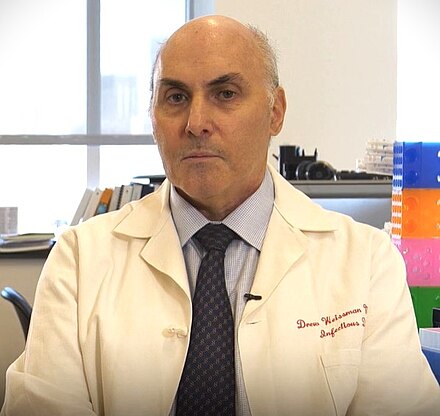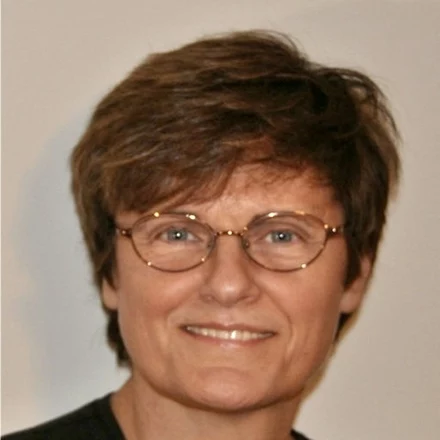“Nearly 30 years after Karikó first began her research into modified mRNA, the COVID-19 pandemic brought mRNA vaccines to the center of the scientific world.”
On October 2, the Nobel Assembly at Karolinska Institutet announced that Hungarian-American biochemist Katalin Karikó and American immunologist Drew Weissman were awarded the 2023 Nobel Prize in Physiology or Medicine for their discoveries related to modified messenger ribonucleic acid (mRNA) for use in vaccines. A critical part of the world’s response to the COVID-19 pandemic, mRNA vaccines were not an effective option until the pioneering work of these two scientists, one of whom faced considerable rejection while laying the foundation that answered one of the world’s greatest public health crises.
Karikó, Weissman Substitute Uridine Molecules to Eliminate Immune System Responses
Katalin Karikó was born in Szolnok, Hungary, and studied in her home country, earning her doctorate degree in biochemistry in 1982 from the University of Szeged. Three years later, Karikó immigrated with her family to the United States and by 1989, she was a faculty member in the neurosurgery department of the University of Pennsylvania’s Perelman School of Medicine. In the late 1980s, scientific discoveries showed that synthetic mRNA could induce human cells to produce proteins, including antibodies. Through the early 1990s, Karikó focused on the development of mRNA as a drug delivery platform, but issues with immune system responses within the human body were an early stumbling block. After failing to attract substantial grant funding for her work, Karikó chose to take a pay cut and remain at the University of Pennsylvania as an adjunct professor in order to continue her research.
A chance encounter in 1997 while photocopying research papers led Karikó to collaborate with Drew Weissman, who arrived at the University of Pennsylvania following a fellowship at the National Institute of Allergy and Infectious Diseases. The pair of researchers focused on ways to introduce mRNA into the human body without triggering a response from the body’s immune system, which degrades unmodified synthetic mRNA too quickly before it can be translated within the human body into antibody proteins. Karikó and Weissman’s major contribution, which led to their Nobel Prize, was to show that the body’s immune response to synthetic mRNA could be suppressed by substituting uridine molecules in the mRNA with pseudouridine.
Along with their Nobel Prize honor, Karikó and Weissman are also recent inductees into the National Inventors Hall of Fame for their advances covered by U.S. Patent No. 8278036, RNA Containing Modified Nucleosides and Methods of Use Thereof. Granted in 2012, the ‘036 patent claims a method for inducing a human cell to produce a protein of interest by contacting the cell with in vitro synthesized modified RNA comprised of pseudouridine. The patent’s specification notes that the claimed method results in a significant decrease in immunogenicity such that the RNA can be repeatedly administered without triggering an immune response that reduces expression of recombinant proteins formed by human cells contacted by the RNA.
Karikó and Weissman applied their discovery to the development of an mRNA vaccine to prevent transmission of human immunodeficiency virus (HIV), but commercial development of mRNA vaccines was not strong during the 2000s and 2010s. In 2013, Karikó joined German biotech firm BioNTech, which became a leading R&D company in the field of mRNA mechanisms. Although she remained an adjunct professor at the University of Pennsylvania, a phone call transcript with Karikó following the Nobel Prize announcement reflected the difficulties she faced in advancing her research while employed as an academic.
COVID-19 Vaccine Race Speeds Toward Goal Thanks to mRNA Modifications
Nearly 30 years after Karikó first began her research into modified mRNA, the COVID-19 pandemic brought mRNA vaccines to the center of the scientific world as tens of billions of dollars in funds were invested to prevent transmission of the respiratory disease caused by the novel coronavirus. Unlike many other forms of vaccines, which involve the lab production of spike proteins that bind to receptors and mediate viral replication processes, mRNA vaccines do not involve administering dead virus particles or their components to human patients. Instead, mRNA sequences instructing human cells to create spike proteins can be created much more easily than the proteins themselves, enabling the fast production of vaccines once the virus’s genetic sequence is discovered. mRNA vaccines for COVID-19 were available 10 months after the genetic sequence was published, and the two most widely administered vaccines, created by Pfizer-BioNTech and Moderna, both utilize mRNA instead of dead virus molecules to promote an immune response in humans.
Since the widespread rollout of COVID-19 vaccines, patent lawsuits among most of the field’s top players reflect the value of controlling market share for mRNA vaccines. In August 2022, Moderna filed lawsuits in the District of Massachusetts as well as German regional court alleging that the Pfizer-BioNTech vaccine utilized a chemical modification covered by Moderna’s patents that allowed mRNA to encode for a full-length spike protein in a lipid nanoparticle formulation for a coronavirus. After Moderna filed additional suits in Ireland and Belgium this July, Pfizer and BioNTech petitioned the Patent Trial and Appeal Board (PTAB) this August for validity review of Moderna’s asserted patents.
Weissman continues to serve as the Roberts Family Professor in Vaccine Research at the University of Pennsylvania’s Perelman School of Medicine. Karikó remains an adjunct professor of neurosurgery at the University of Pennsylvania. She has been honored several other times in her career as well, receiving the Lasker-DeBakey Clinical Medical Research Award in 2021 as well as Lifetime Achievement honors at the 2022 European Inventor Award.
Images Source: Wikipedia
https://commons.wikimedia.org/wiki/File:Katalin_Kariko_light_corrected.jpeg
https://en.wikipedia.org/wiki/Drew_Weissman#/media/File:Drew_Weissman_Life_Science_medalist.jpg

![[IPWatchdog Logo]](https://ipwatchdog.com/wp-content/themes/IPWatchdog%20-%202023/assets/images/temp/logo-small@2x.png)



![[Advertisement]](https://ipwatchdog.com/wp-content/uploads/2024/04/UnitedLex-May-2-2024-sidebar-700x500-1.jpg)
![[Advertisement]](https://ipwatchdog.com/wp-content/uploads/2024/04/Artificial-Intelligence-2024-REPLAY-sidebar-700x500-corrected.jpg)
![[Advertisement]](https://ipwatchdog.com/wp-content/uploads/2024/04/Patent-Litigation-Masters-2024-sidebar-700x500-1.jpg)

![[Advertisement]](https://ipwatchdog.com/wp-content/uploads/2021/12/WEBINAR-336-x-280-px.png)
![[Advertisement]](https://ipwatchdog.com/wp-content/uploads/2021/12/2021-Patent-Practice-on-Demand-recorded-Feb-2021-336-x-280.jpg)
![[Advertisement]](https://ipwatchdog.com/wp-content/uploads/2021/12/Ad-4-The-Invent-Patent-System™.png)






Join the Discussion
No comments yet.